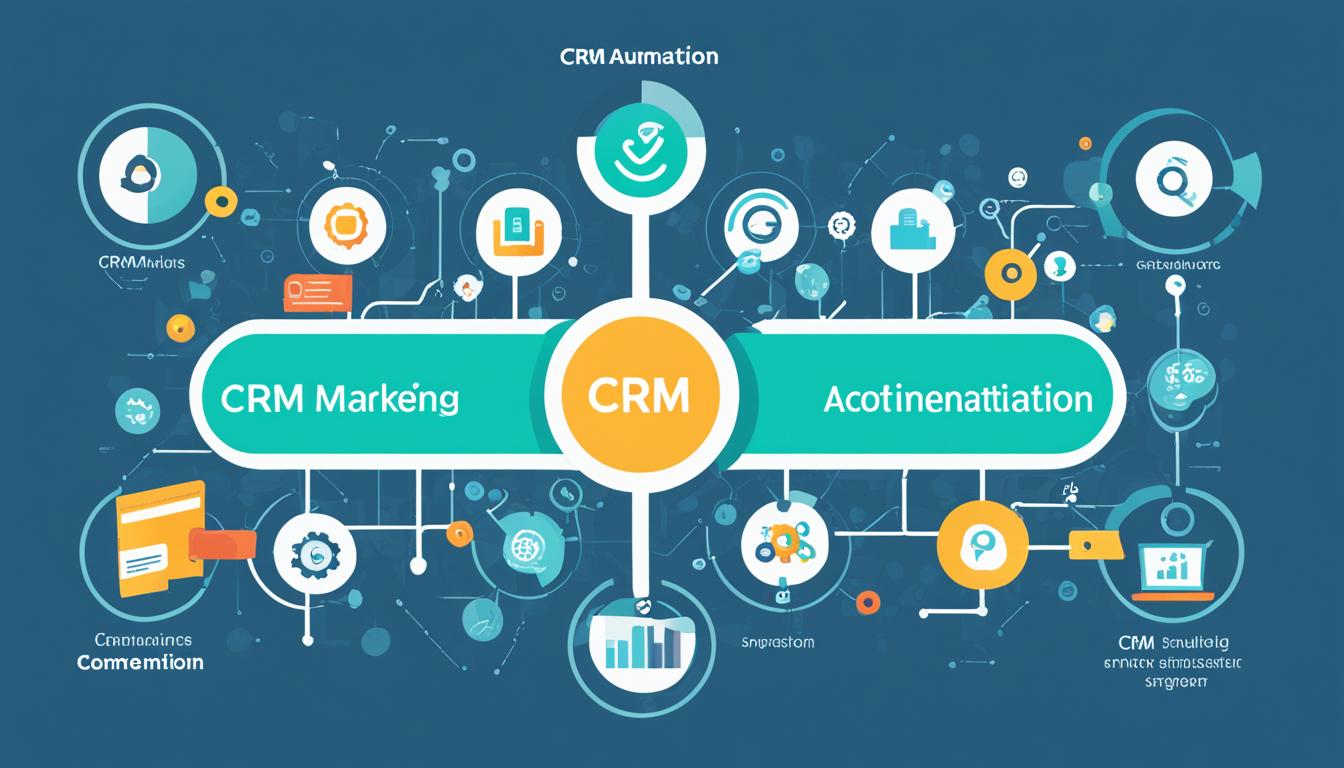SQL is a game-changer for marketers. It helps them get insights from data in digital marketing. Marketers use SQL to create targeted campaigns, improve audience segmentation, and make their strategies better. Let’s dive into how SQL is making a big impact in marketing and how it can change your data-driven marketing game.
Key Takeaways:
- SQL is a valuable tool for data analysis and insights in marketing.
- It enables marketers to query databases, generate reports, and gain valuable insights into customer behavior.
- SQL reports offer actionable insights, such as customer behavior analysis and marketing channel performance.
- Customer behavior analysis with SQL helps marketers understand customer interactions and tailor marketing efforts accordingly.
- SQL allows for customer segmentation, enabling targeted and personalized marketing campaigns.
Understanding Marketing Analytics and SQL
Marketing analytics uses data analysis to help make better marketing decisions. It’s key in our data-driven world. By analyzing customer data, marketers can improve their strategies and make their campaigns more effective.
SQL stands for Structured Query Language, a vital tool in marketing analytics. It helps marketers pull insights from big data sets. They can then look at market trends and make smart choices for their campaigns.
Marketers use SQL to dive deep into data and create strategies based on current insights. With SQL, they can search databases and find specific info. They can also do complex math to see patterns, trends, and links in the data.
Using SQL helps marketers in many ways. For instance, they can group their audience by things like age, buying history, and actions. This helps send personalized messages to different groups, increasing engagement and sales.
Benefits of SQL in Marketing Analytics
- Streamlined Data Analysis: SQL makes it easier to pull out and look at data, helping marketers decide faster.
- Enhanced Campaign Effectiveness: With SQL, marketers understand customers better, helping them fine-tune their campaigns for more success.
- Data-Driven Decision Making: SQL helps marketers make choices based on solid data, not guesses. This makes their strategies more precise.
- Improved ROI: SQL lets marketers measure how well their campaigns are doing. They can then use their resources better and boost their returns.
By using SQL in marketing analytics, marketers can really tap into their data’s potential. They can pull out important insights, tailor their campaigns, and make smart decisions. This is crucial to stand out in today’s competitive marketing world.
Keep reading to see how SQL helps in marketing analytics. You’ll learn about analyzing customer behavior, segmenting audiences, and looking closely at marketing channels.
Using SQL Reports for Marketing Analytics
SQL reports are crucial for marketing analytics. They offer insights and answers to important marketing questions. These reports help marketers understand what customers like, track how well campaigns are doing, and make informed decisions to improve marketing.
Take customer behavior analysis as an example. By analyzing customer data with SQL queries, marketers can learn about customer interactions, buying history, and preferences. This helps in spotting trends and patterns. Marketers can then improve strategies and create tailored campaigns for different customer groups.
Customer segmentation is another way to use SQL reports in marketing. Marketers can group customers by demographics, buying behavior, and other factors using SQL queries. This leads to more focused and personalized marketing. It helps increase customer interest and the chances of them buying something.
SQL reports also help in analyzing different marketing channels. By looking into how customers sign up and buy through various channels, marketers can see which ones work best. This lets them spend their marketing budget more wisely, focusing on the most successful channels.
To create SQL reports useful for marketing, you need both SQL skills and marketing knowledge. Marketers must know what they’re looking for. They should create SQL queries to find those key metrics. Then, they can use data visualization tools to make their findings easy to understand and act on.
Example SQL Report: Customer Behavior Analysis
| Report Metrics | Description |
|---|---|
| Customer Interactions | Analyzes the frequency and type of customer interactions with marketing campaigns, such as email opens, link clicks, website visits, and social media engagements. |
| Purchase History | Tracks customers’ past purchases, order amounts, and purchase frequency to identify loyal customers and high-value segments. |
| Behavioral Segmentation | Segments customers based on specific behaviors or actions, such as repeat purchases, abandoned carts, or inactive customers. |
SQL reports like the example given can shed light on customer behavior. They uncover chances for personalized marketing. Marketers can fine-tune their approaches to encourage more engagement and sales.
Customer Behavior Analysis with SQL
Analyzing customer behavior is crucial for marketing. It helps marketers learn from customer actions like orders and sign-ups. They use SQL to dig into this data. This way, they get to know their customers better. SQL tracks sign-ups and orders, highlighting top spenders.
Using SQL, marketers find trends in how customers behave. This lets them make smart choices for their marketing plans. They learn what customers like and expect. Then, they adjust their marketing to fit those needs.
Analyzing Customer Interactions for Deeper Insights
SQL aids marketers in examining customer actions for deep insights. They see which campaigns bring in most new customers. Knowing this, they can use their budget more wisely. They focus more on those profitable channels.
By studying orders, SQL reveals what customers prefer and buy most. Marketers spot their most loyal customers this way. They then offer special deals to keep them happy. This strategy helps keep valuable customers around longer.
Basically, SQL is a powerful tool for understanding customer behavior. It lets marketers fine-tune their strategies. By getting to know how customers react and what they like, marketers can craft better campaigns. This improves targeting and brings stronger results.
Customer Segmentation with SQL
Customer segmentation lets marketers place customers in groups by their traits, likes, and actions. This helps understand what different groups of customers prefer. Using SQL, marketers can dig into customer data. This way, they craft personal campaigns that speak to each group.
By running SQL queries, marketers can explore their customer data for insights. They might group customers by age, gender, location, or income. With these details, they can send messages and offers that hit the mark for specific groups.
Another way to segment is by looking at customer behaviors and buying patterns. SQL helps find trends like browsing habits and how often they buy. This means marketers can create groups based on these behaviors. They can then send very relevant offers to each group.
SQL also helps segment customers based on how they interact with marketing. By checking data from emails, social media, or website clicks, marketers learn which channels work best. They can then smartly use their budget, focusing on what brings the best results.
Let’s consider an example to show how powerful SQL is in customer segmentation:
| Segment | Description |
|---|---|
| New Customers | Customers who just bought something in the last 30 days |
| Frequent Shoppers | Customers who bought items more than three times in six months |
| High-Value Customers | Customers who spent more than $1000 in total |
| Churned Customers | Customers who haven’t bought anything in the last 90 days |
Here, SQL can identify customer groups based on their shopping habits and value. Marketers can craft specific campaigns for each group. They might send special offers to new customers or try to win back those who’ve stopped shopping. This approach leads to effective marketing.
In conclusion, customer segmentation with SQL helps marketers get to know their customers better. They can make marketing feel personal and targeted. By using SQL for segmentation, they can engage customers better, improve results, and achieve their business goals.
Marketing Channel Analysis with SQL
Marketing channel analysis is key for marketers to understand how different channels affect campaign success. By using SQL queries, marketers can check and analyze important metrics. They can also look at customer registrations and conversions across different channels to find ways to get better results.
Doing a good job with marketing channel analysis helps marketers use their budget wisely. They put their money into channels that give the best results. With SQL, they get insights into how each channel helps their campaigns. This helps them make choices based on data to improve marketing results and get the most out of their investment.
Tracking Campaign Success
One main goal in analyzing marketing channels is to see if marketing campaigns are working. SQL helps marketers gather and study data on customer actions from different channels. This helps them see which channels are effective in encouraging desired actions.
SQL queries help marketers pull important data from databases and create detailed reports to check if a campaign is successful. By doing this, marketers can find out which channels are doing well, spot the ones that are not, and decide how to improve their marketing strategies.
Optimizing Marketing Spend
When using SQL for marketing channel analysis, marketers learn which channels give the best ROI and customer acquisition costs. They analyze data on customer actions and costs to wisely use their marketing budget.
SQL queries help calculate vital metrics like cost per acquisition (CPA) and return on ad spend (ROAS) for every channel. This lets marketers put their money into channels that bring in more conversions and sales while saving costs on weaker channels.
Identifying Opportunities for Improvement
SQL for marketing channel analysis brings out insights that show marketers where they can get better. By looking at customer behavior and data from various channels, they see trends and preferences that can make future campaigns better.
For instance, SQL can show which channels bring the most engaged customers. This helps marketers focus more on these channels to keep customers coming back. SQL also helps point out channels that aren’t reaching the right audience, so marketers can improve their messages to reach the people they want more effectively.
In conclusion, marketing channel analysis with SQL helps marketers make choices based on data, improve their strategies, and get better campaign results. By using SQL for channel performance, marketers can understand how effective their channels are, track success, use their budget wisely, and find ways to get better.
Benefits of Using SQL in Digital Marketing
SQL brings a lot of perks to digital marketing. It allows for quicker data access, makes reporting tasks automatic, and aids in smarter business decisions. It also enhances data analysis and visualization. Through SQL, marketers can understand their audience better. They can see how well their campaigns are doing. And they can fine-tune targeting and personalization.
1. Faster Data Querying
SQL makes getting data from databases fast and simple. Marketers can write SQL queries to grab exactly what they need from big datasets. This means they can analyze things and make choices more quickly.
2. Automation of Reporting Processes
SQL lets marketers automate creating reports by using stored procedures and scheduled tasks. No more manual pulling, changing, and making reports. This saves time and lowers the chance of mistakes.
3. Better Business Decision-Making
SQL helps marketers look at data and find key takeaways. With SQL, they can base their decisions on solid data. This leads to stronger marketing plans and campaigns.
4. Data Analysis Capabilities
SQL gives marketers tools to dig deep into data. They can spot patterns, trends, and links in their marketing data. By querying SQL, marketers can turn plain data into useful knowledge. This helps them get how customers behave and what they like.
5. Data Visualization
SQL works with tools like Tableau or Power BI for showing data in a clear, visual way. It lets marketers create eye-catching charts, graphs, and dashboards. This way, they can share insights more clearly with others and suggest actions based on data.
By using SQL in digital marketing, marketers can really tap into their data’s potential. This improves how well campaigns work and brings better results for their companies.
Next, we’ll see real examples of how SQL can boost marketing analytics. It does this by giving rich insights into how customers act and how campaigns perform.
Learning SQL for Marketing Professionals
For marketing pros, learning SQL is key to using data to get ahead. With SQL, they can dig into data, find important info, and make their campaigns better. Let’s look at some ways to learn SQL:
1. Reading Books and Tutorials
Books and online guides offer a clear path to learn SQL. For instance, “Learning SQL” by Alan Beaulieu teaches beginners and pros alike. Websites like W3Schools have easy-to-follow SQL tutorials too.
2. Taking Online Courses
Learning SQL online is flexible and easy. SoloLearn has courses for marketers. These online lessons come with step-by-step guides and hands-on exercises. They make learning and applying SQL easy, especially for marketing.
3. Joining Coding Communities
Being part of coding communities like Stack Overflow is super helpful. You can ask questions and get advice. It’s a great way to understand SQL better and pick up practical skills.
It’s crucial to practice SQL on real marketing data. Testing your SQL skills on actual data can help. It improves how you analyze campaigns and make smart, data-based choices for success.
Online Platforms for SQL Learning
| Platform | Description | Features |
|---|---|---|
| SoloLearn | A comprehensive online learning platform with specialized SQL courses for marketers. |
|
| Udemy | A popular online learning marketplace with a wide range of SQL courses for marketers. |
|
| Coursera | An online learning platform offering SQL courses from top universities and institutions. |
|
Spending time to learn SQL can really pay off. It enables marketers to master data-driven strategies. This gives them a big edge in the digital world.
Conclusion
SQL is very important for marketing experts. It helps them unlock important data insights and make better decisions. They use SQL to understand customer behaviors, analyze trends, and target specific groups.
This leads to more personalized and effective campaigns. These smarter efforts increase engagement and sales. So, learning SQL can truly change the game for marketers.
This article shows that SQL is key for analyzing marketing data. It helps understand customers and improve campaigns. With SQL, marketers can see how customers interact and what they buy.
This knowledge lets them focus on the most valuable customers. It guides them to make data-driven decisions. This boosts the success of their marketing efforts.
In summary, SQL is a must-have for data-driven marketing. It’s powerful for analyzing and optimizing campaigns. SQL helps in understanding the audience and checking how well marketing channels work.
By using SQL, marketers can use data to improve their work. This takes their marketing to the next level. It’s a smart move in the digital world.







